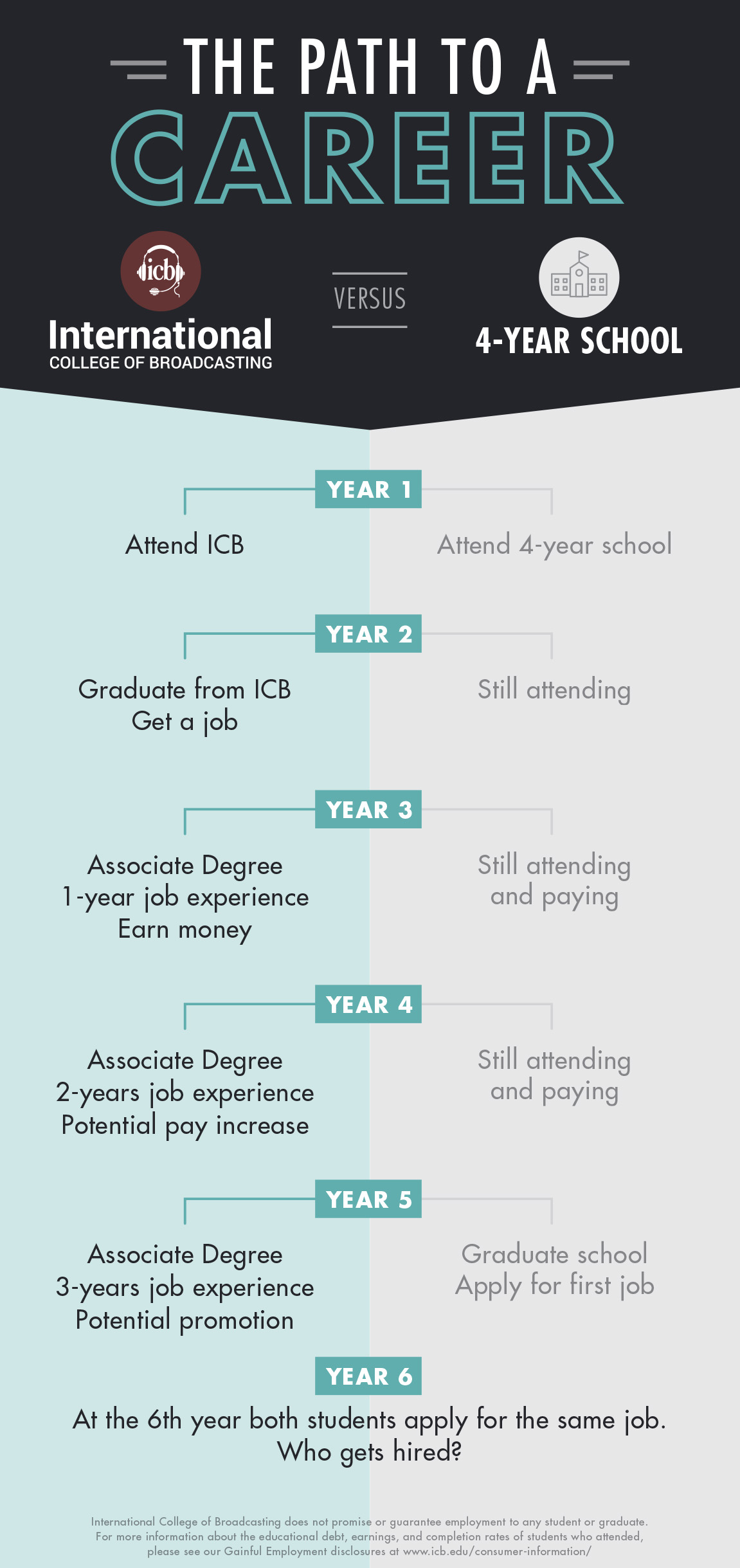When it comes to choosing the right college, there are a number of things to consider. How much time and money are you willing to invest? What school and degree program will prepare you to enter into your chosen career? Will you be more comfortable in a small classroom environment or a large setting? Let’s take a closer look at some of the differences.

Time to Complete
The obvious difference between these two educational options is the amount of time you will spend in school. Generally when you attend a four-year school, the degree requirements dictate that you take a general education and theory-based courses. Two-year schools focus more on hands-on education of the core classes, and also tend to provide real-life opportunities to apply your knowledge.
Cost Differences
In general, attending a two-year college is much more affordable. The average tuition is typically half that of a four-year school. Many two-year colleges, including the International College of Broadcasting also offer financial aid to those who qualify. So depending on your career goals, a two-year school is a great option that can potentially save you thousands of dollars.
School Environment
Many four-year colleges have a much larger student body than most two-year schools. Students sometimes can feel they are “just a number”. Often two-year colleges, like ICB, offer a personal experience with smaller class sizes. Two-year colleges also tend to be more flexible, allowing you to work and maintain a personal life while working towards your education goals.
Pursue your passion with ICB Today!Graduate Success Story
Seth Kupper
Producer/Board Operator
WTJN Radio
 “A Bachelor’s degree from a 4-year university is nice but, was not needed to come here to ICB or to get into the broadcasting field.
“A Bachelor’s degree from a 4-year university is nice but, was not needed to come here to ICB or to get into the broadcasting field.
I wanted to come here to ICB; just get behind the scenes with radio, TV, and get in the media field. Sports media field, statistics, research, among other things.
Coming here to ICB you get hands-on training from the instructors who actually work in the field. Plus, you get to play with all the cool equipment and you might be using that equipment when you get into the media field.
I think the teaching staff does hands-on pretty good. They’re very understanding, pushing you so you can do your best. So, when you get to the real world, you’ll thank them later, saying, “Well I’m glad I came to ICB. I’m glad I had this instructor, he pushed me to go above and beyond what I can do.”
It helped me get a job because it made me feel more comfortable when I’m doing the job I’m doing right now. Before I came here I didn’t know what I was doing but now, I know what I’m doing.
As Tommy [ICB instructor] says, “Make your mistakes in here. You make your mistakes here then you’re going to learn from your mistakes then you’ll know what you’re doing when you have a job”.”
We don’t just teach…we help build careers.
International College of Broadcasting does not promise or guarantee employment to any student or graduate. For more information about the educational debt, earnings, and completion rates of students who attended, please see our Gainful Employment disclosures.

